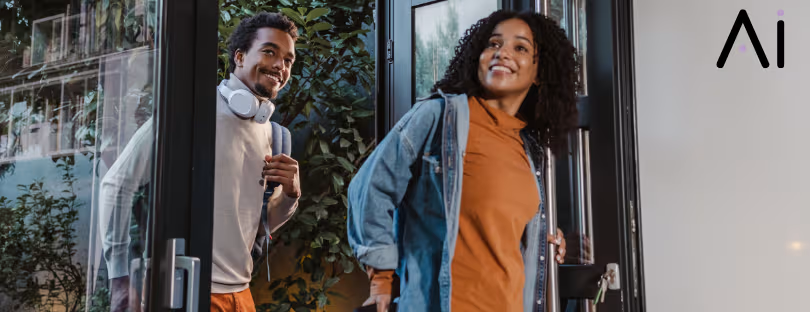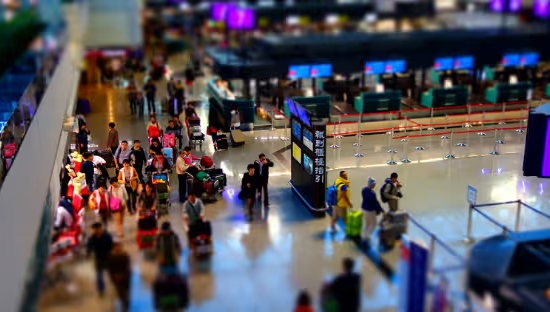
AI Tools Still Fail Short-Term Rental Hosts in 2025
Artificial intelligence may be the buzzword of the travel and hospitality industry, but when it comes to short-term rental hosts, the tech still isn’t pulling its weight. A new PriceLabs Global Host Report 2025—based on more than 1,400 SRT professionals — reveals a surprisingly stubborn truth: AI isn’t actually solving the problems that swallow the most time.
In fact, only 14% of hosts say AI is helping them today. Almost half (47%) admit they find it overwhelming. Yet both groups—the tech-embracers and the overwhelmed—spend exactly the same amount of time managing their listings: an average of 8.3 hours per week.
So yes, hosts are adopting AI tools, but the payoff just isn’t there yet, especially for small operators managing one to four properties. And the reason becomes clear when you dig deeper into the data.
The Real-Time Killers Are Still Offline Tasks
One of the clearest findings from the report is that the tasks eating into hosts’ time aren’t the ones most AI tools are built to fix.
A massive 76% of hosts say administrative chores—accounting, tax filing, and compliance—are extremely time-consuming. Another 72% say property servicing, including cleaning and maintenance, is their biggest operational drain. These are the gritty, operational, boots-on-the-ground parts of hosting. And today’s AI tools are still far more optimized for messaging, pricing, and content generation—not tax prep or real-world housekeeping.
Even more revealing: only 10% of hosts plan to invest in cleaning or turnover tech in the coming year. And nearly half (48%) still rely on spreadsheets for planning and reporting.
In other words, the industry is still running on manual workflows while the conversation is running on AI hype.
Hosts Are Financially Savvy—But Missing Operational Tech ROI
Despite the low uptake of automation for back-office tasks, hosts aren’t ignoring their numbers. A strong 68% monitor key financial indicators at least weekly. Revenue management has clearly become a core discipline for even the smallest operators — a trend also reflected in AirDNA, Transparent, and STR data reports across the industry.
But on the operational side, hosts remain cautious. There’s still a visible education gap around the return on investment that automation can deliver, especially for tasks that feel too “physical” to digitize.
Yet property-care platforms like Properly, Breezeway, and Turno have spent years proving the opposite. Their data reinforces that automated scheduling, checklists, and staff coordination can dramatically reduce mistakes, missed cleans, late turnovers, and overall workload. PriceLabs’ findings suggest the adoption curve still has a long way to go.
OTA Anxiety Is Real—And Hosts Feel the Pressure
When it comes to distribution, the report shows another strong emotional theme: hosts are worried.
Nearly two-thirds (63%) are anxious about their visibility on platforms like Airbnb, Booking.com, and Vrbo. And 71% admit negative reviews keep them up at night—understandable, given that a single 3-star rating can push them down algorithmic rankings more dramatically than in hotels.
But despite the ongoing frustrations, Airbnb remains the favorite. An overwhelming 98% of hosts use it, and it leads in satisfaction with a 4.1/5 score—significantly higher than Vrbo’s 3.3 and Booking.com’s 3.1. Airbnb continues to win the hearts of hosts, even as its policies and algorithms remain a source of stress.
At the same time, 90% of hosts plan to invest the same or more into their direct-booking websites next year. The “book direct” movement is no longer a trend—it’s now a foundational strategy.
Voices from the Industry: Hosts Are Entrepreneurs, Not Hobbyists
Richie Khandelwal, co-founder of PriceLabs, summed up the report perfectly: Hosts are showing serious entrepreneurial ambition. Many are juggling full-time jobs while building professional rental operations with long-term growth plans. The market isn’t made up of casual landlords anymore—it’s a sector full of micro-entrepreneurs scaling up.
And that’s exactly where the opportunity lies: AI may not have delivered time savings yet, but hosts are ready to invest in tech that genuinely helps.
Conclusion: AI Isn’t the Problem—Misaligned Solutions Are
What this report really shows is not an AI failure but an industry mismatch.
The short-term rental market has matured faster than the tools supporting it. While pricing engines, chatbots, and listing optimizers have evolved quickly, the industry’s biggest time drains—admin, compliance, maintenance, and turnover—still lack intuitive, affordable, small-host-friendly automation.
Other players confirm this pattern. Data from Breezeway, Turno, and Lodgify consistently shows that the bottlenecks hitting hosts hardest are workflow management and property care coordination, not pricing or guest messaging. Meanwhile, PwC and Skift’s 2024–2025 travel tech outlooks indicate the next major wave of hospitality automation will be operational AI, not marketing AI.
This means the future of hosting won’t be shaped by chatbots or listing descriptions, but by intelligent scheduling systems, automated maintenance logs, predictive cleaning tools, dynamic compliance support, and integrated financial automation.
AI isn’t failing hosts. It’s simply not being applied where hosts actually need it most—yet.
The next generation of travel tech startups that solve those pain points will be the ones that finally deliver the time savings this industry has been waiting for.










